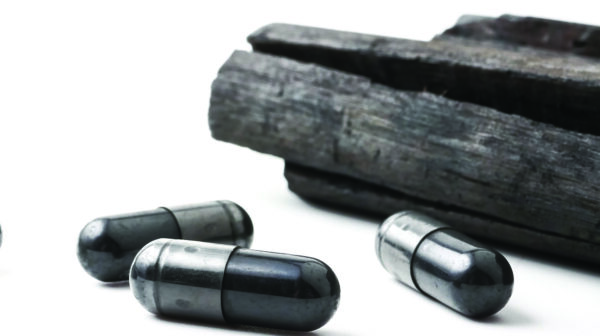I am interested in the benefits of activated charcoal. A friend told me it’s great as a detox. Is that true?
You have asked two interesting questions: one about activated charcoal, and one about “detox.”
A quick visit to the Internet will take you to numerous sites, mostly commercial, that sing the praises and ring up the charges on juices, potions, and powders from plant extracts to probiotics to “detox” our bodies.
We have been “fearfully and wonderfully made,” designed by a Creator who has taken all our metabolic needs into account. Each and every day our bodies are actively engaged in taking care of all the waste products, sometimes referred to as toxins. In high concentrations some of these—such as urea and carbon dioxide—are harmful. The lungs, liver, kidneys, gastrointestinal system, and the process of perspiration take care of detoxifying the body of the products of metabolism that are harmful. We cannot improve on the design.
We can work toward having the greatest efficiency of the body’s built-in detox process by drinking adequate amounts of pure water; eating a diet rich in fiber, using a variety of fruits, vegetables, whole grains, nuts, and legumes; and exercising regularly. All of these habits may improve general body function and cognitive function, and stimulate and strengthen immunity—a truly win-win situation. Adding charcoal as a supplement or treatment does not improve this process.
Activated charcoal (referred to as charcoal in this article) is produced by superheating natural sources of carbon, such as wood, along with an activating gas to help expand the surface area. Charcoal has been used for many decades in the treatment of poisoning. Because it’s porous and therefore has a large surface area, it’s able to trap (absorb) chemicals and drugs following an overdose (intended or otherwise). It is not useful in poisonings with alcohol, lithium, cyanide, or iron tablet overdose. In a case of poisoning, never just guess as to whether charcoal will be helpful; always call for emergency and professional help and proceed to a hospital. If charcoal is specifically recommended, it should be administered as soon as possible.
It may be because of the usefulness of charcoal in poisonings and overdoses that it’s advertised as a general detox agent in the healthy state. This is not supported by robust research and science, and it should not be used as a general detox agent. Charcoal may reduce bloating and flatulence, but the literature is divided on its actual efficacy. It may be helpful in diarrhea, as it may bind toxins. It is generally harmless when used in appropriate doses.
The side effects of charcoal taken by mouth include a black tongue, black stools, vomiting, and diarrhea or constipation. It should not be used in combination with drugs for constipation. Because of its ability to trap chemicals or drugs, it may influence the availability and absorption of regularly taken medications. Speak with your physician about the advisability of your personal use of charcoal.



